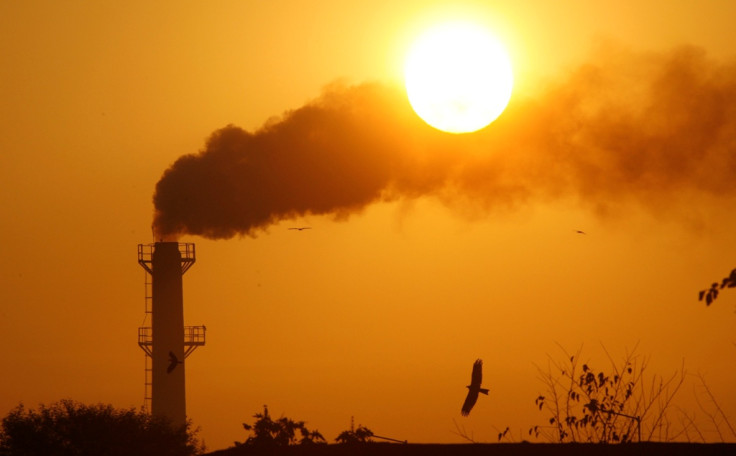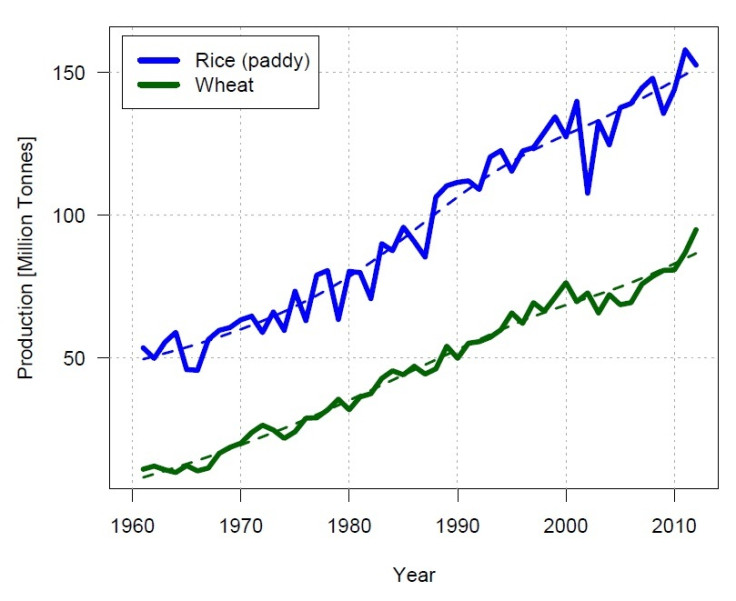Air Pollution 'Cuts India's Potential Foodgrain Output by Half'

Air pollution appears to have a direct, negative impact on India's foodgrain output, with recent increases in smog decreasing projected yields by 50%, according to a study.
The research paper – Recent climate and air pollution impacts on Indian agriculture – published in the Proceedings of National Academy of Sciences (PNAS), examined what wheat production could have been if there was less pollution.
Analysing 30 years of data, scientists built a statistical model suggesting that air pollution caused wheat yields in densely populated states to be 50% lower than what they could have been in 2010.
Up to 90% of the decrease in potential food production seems linked to smog, made up of black carbon and other pollutants, the study said.
Changes linked to global warming and rainfall levels accounted for the other 10%, it added.

Food production in India continues to increase thanks to new technologies and management techniques.
However, Jennifer Burney, who authored the study with V Ramanathan, told the Thomson Reuters Foundation that agriculture was often not considered when governments contemplate the economic costs of air pollution and laws aimed at battling it.
Tackling global warming requires international cooperation but reducing smog was often a simpler process that could occur at the national level, she added.
Burney, a scientist at the University of California, said trucks could be fitted with better particulate filters for diesel, and the Indian government could help the rural populace use cleaner fuels in their cooking stoves, rather than biomass.
"None of these [mitigation techniques] are very high tech," she said, adding that better public policies on clean air could help Asia's third largest economy meet its goal of reducing hunger to zero.
Ozone Pollution
India's ozone pollution has in the past damaged millions of tons of the country's staple crops, which could have fed a third of its poor.
According to a study published in August in Geophysical Research Letters, surface ozone pollution damaged six million metric tons of India's wheat, rice, soybean and cotton crops in 2005.
The lost wheat and rice crops could have fed 94 million of India's poor, according to Sachin Ghude, an atmospheric scientist at the Indian Institute of Tropical Meteorology (IITM) and the lead author of the study.
© Copyright IBTimes 2025. All rights reserved.






















